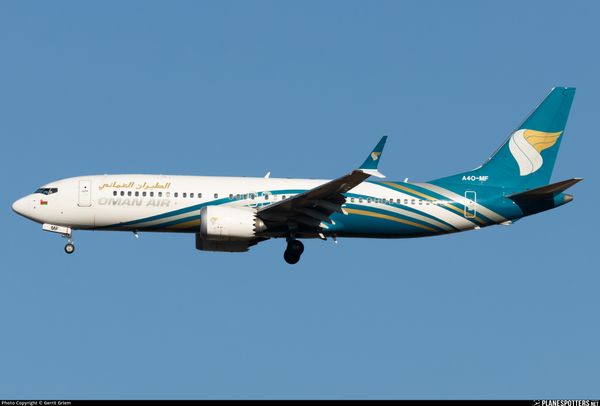Finnish refining company Neste introduced a new solution to help companies reduce their aviation emissions by purchasing sustainable aviation fuel (SAF). Neste Impact allows businesses to report carbon dioxide emissions reductions that align with their sustainability targets.
.jpg)
Neste Impact
Neste Impact is a solution aimed at helping companies reduce the carbon footprint of their aviation activities, such as flying employees to other countries on business trips. Neste's SAF can reduce emissions by up to 80% compared to traditional jet fuel. Several airlines, including Ryanair and Air Canada, have incorporated SAF into their operations by purchasing Neste's fuel. Many aviation stakeholders view SAF as essential to help the industry meet its net zero emissions target by 2050.
Neste Impact allows companies to translate their climate targets into specific, measurable plans to decarbonize their aviation operations. These sustainability goals can be achieved using Neste's SAF for flight activities instead of traditional jet fuel. Neste's accountability mechanism ensures the SAF is provided to a partner airline and enough fuel is purchased to replace fossil fuels completely. The company then receives a report allowing it to record the emissions reductions they have achieved officially.

Neste Impact aims to reduce the likelihood of greenwashing, when a company uses marketing to persuade stakeholders that its operations and policies are environmentally friendly. The solution is aligned with the Science Based Targets initiative (SBTi), a climate reporting mechanism helping companies establish emissions reduction targets in line with global climate goals. Neste supports the SBTi's Aviation Guidance pathway that outlines a 1.5 degrees Celsius (2.7 degrees Fahrenheit) aligned target for aviation entities. The company supports this pathway, which follows a book-and-claim approach, by ensuring SAF is delivered and used specifically to replace fossil fuels.
Third parties verify the achieved emissions reduction, with the International Sustainability and Carbon Certification (ISCC) SAF certificate (SAFc) registry further validating the claim. The SAF purchases provide additional emissions reductions since they are not conducted to meet regulatory requirements such as fuel mandates imposed by national governments.
.jpg)
Kristina Öström, Neste's Vice President of Marketing, Brand, and Partnerships, said about the solution:
"The urgency for climate action has never been greater, and businesses are increasingly looking for solutions that help them to reduce their aviation related carbon footprint. However, it can be a challenge to find a credible solution, particularly considering the ever-increasing reporting requirements and public demand for transparency. Neste Impact provides an easy to use solution for verified emission reductions, provided by the world's leading producer of SAF."
Neste's SAF and Future Plans
Neste's SAF is made from raw materials that come from sustainable sources and are 100% renewable. These materials include used cooking oil and animal fat waste. Companies are increasingly focusing on reducing aviation emissions as the industry currently accounts for approximately 2 to 3% of global carbon dioxide emissions. Business travel is expected to continue growing as the International Air Transport Association (IATA) predicts a 200% increase in air travel by 2040. Companies view SAF as a way to continue their business operations without further contributing to climate change.

Neste has outlined several goals to accomplish over the next two decades. By the end of the decade, the company aims to help its customers reduce emissions by at least 20 million tons annually and make its refinery in Finland the most sustainable in Europe. Neste also plans to reach carbon-neutral production and facilitate a 50% reduction in carbon emission intensity of sold products by 2035 and 2040, respectively. Aside from direct emissions savings from its SAF, the company has established high moral standards for biodiversity, human rights, and the supply chain. The latter goal is especially important as customers and companies become more aware of the ethical dimensions of their activities.
Wizz Air Relaunches Suceava Base with Two A321neos and Seven New Routes » NTSB: Maintenance Error Led to Citation CJ4 Gear Collapse in Baton Rouge » Oman Air Returns To Singapore After Nine Years with New Boeing 737 MAX Service »
Comments (0)
Add Your Comment
SHARE
TAGS
NEWS Neste Finland Sustainability Sustainable Aviation Fuel SAF Business Travel Sustainable AviationRECENTLY PUBLISHED
 Oman Air Returns To Singapore After Nine Years with New Boeing 737 MAX Service
Oman Air Returns To Singapore After Nine Years with New Boeing 737 MAX Service. It will resume nonstop service to Singapore Changi Airport (SIN) starting July 2, 2026, restoring a vital link between the Sultanate and Southeast Asia that was suspended in 2017.
ROUTES
READ MORE »
Oman Air Returns To Singapore After Nine Years with New Boeing 737 MAX Service
Oman Air Returns To Singapore After Nine Years with New Boeing 737 MAX Service. It will resume nonstop service to Singapore Changi Airport (SIN) starting July 2, 2026, restoring a vital link between the Sultanate and Southeast Asia that was suspended in 2017.
ROUTES
READ MORE »
 Wizz Air Relaunches Suceava Base with Two A321neos and Seven New Routes
Wizz Air has officially reopened its base at Suceava "Stefan cel Mare" International Airport (SCV). The reopening immediately enhances connectivity by launching seven new direct routes to five countries.
ROUTES
READ MORE »
Wizz Air Relaunches Suceava Base with Two A321neos and Seven New Routes
Wizz Air has officially reopened its base at Suceava "Stefan cel Mare" International Airport (SCV). The reopening immediately enhances connectivity by launching seven new direct routes to five countries.
ROUTES
READ MORE »
 How Borders Shape Human Stories
The existence of borders can be seen through not only maps; they are also emotional markers that determine how an individual travels or moves, how an individual dreams, and what the individual considers to be their place in the world.
INFORMATIONAL
READ MORE »
How Borders Shape Human Stories
The existence of borders can be seen through not only maps; they are also emotional markers that determine how an individual travels or moves, how an individual dreams, and what the individual considers to be their place in the world.
INFORMATIONAL
READ MORE »



